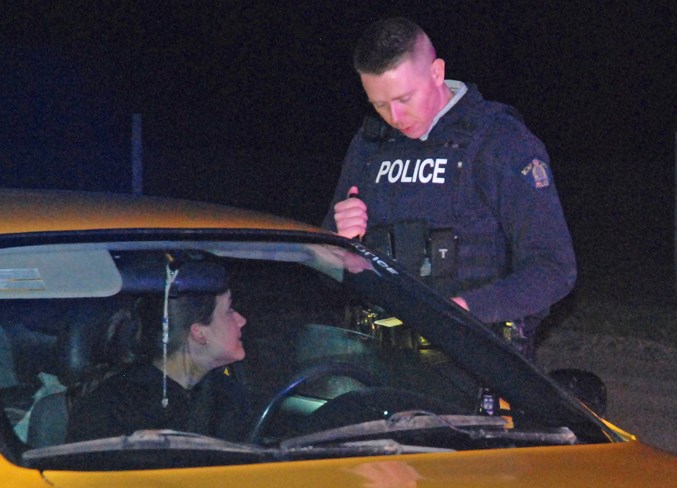Following the successful completion of an intensive drug impairment recognition course, one of Sundre’s constables is confident about his ability to accurately identify drivers who are under the influence.
Const. Dow York — who this September will have completed two years of his first posting with the Sundre detachment — was among nearly 20 officers who this past February trained in Jacksonville, Fla., to learn about the kinds of behavioural and physiological cues that are telltale indications of impairment from seven categories of drugs, ranging from uppers like cocaine and downers like heroin to just about everything in between.
Now a qualified Drug Recognition Evaluator, York said successful candidates had to in a majority of instances correctly determine in a test setting what substance(s) an impaired individual had consumed.
There is a general misconception among the public that police throughout Canada are ramping up these kinds of initiatives specifically ahead of the impending legalization of recreational cannabis, the officer said during a ride along on May 18.
While the end of cannabis prohibition is certainly a contributing factor behind the countrywide effort to increase the number of police officers trained in drug recognition evaluation, the constable said the main motivation is the proliferation of illegal substances such as meth and fentanyl.
People also often erroneously assume that failure to pass the walk-a-straight-line test essentially automatically results in being arrested for driving under the influence, he said. However, roadside sobriety tests cover many more bases, including pupil dilation, eye reaction and reflexes, heart rate as well as blood pressure, he said.
So provided a driver passes the other tests, failing to walk a perfect line because of, for example, a recovering leg or foot injury does not necessarily mean the motorist will be arrested, he added.
Of course any motorist accused of impaired driving remains innocent until proven guilty and a toxicology test must confirm an officer’s initial on-scene assessment before charges are laid.
Some people also seem to assume the police are out to malevolently ruin everybody’s fun. However, catching and removing impaired motorists from the road is not about raining on anyone’s parade, but rather taking measures to make the streets safe for everyone, he said.
I would like to think the vast majority of us do not associate driving impaired with having a good time, and can only express gratitude for officers such as York, who are dedicated to pursuing self-development courses and also put their lives on the line to protect their communities.
Remember, there is never a reasonable excuse to drive impaired — call a relative or friend, a local taxi service, or if possible simply rest in place or walk home.
There is always another option, and driving smashed certainly is not one of them.

